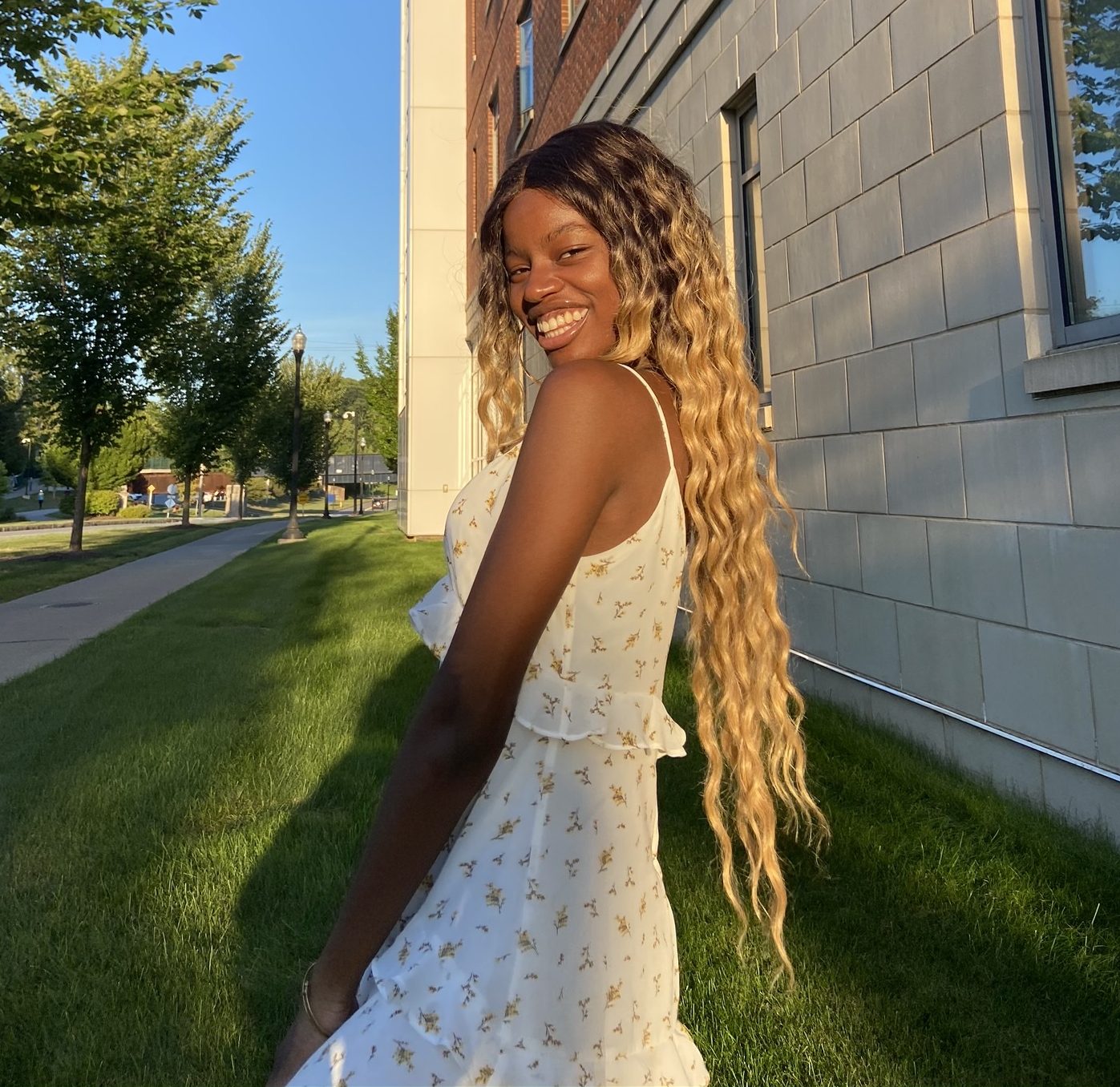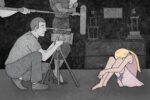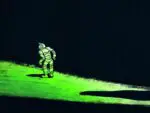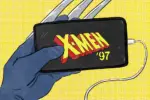Sounds of shrieking horns and off-beat drums play during Disney’s familiar castle intro. And even though the screen is filled with images that remind me of my middle school band room, I can’t help but smile when I see that the scene turns into just that. Joe Gardner, played by Jamie Foxx, is a middle school band teacher whose dream is to be a professional jazz musician. However, after he falls into an open pothole and dies, he has to find a way to reconnect his soul to his body. On the way, he embarks on a journey of self-discovery by viewing his life from an outsider’s perspective; he realizes that the key to living maybe isn’t what feeds your soul, but rather, your will to change your perspective on life. This review of “Soul” contains spoilers.
Joe Gardener: The “Average Joe”
Pixar has always done a great job at making compelling and relatable characters not just for kids, but adults as well. Joe Gardner is your typical struggling artist hopping from one gig to the next but he dreams of doing big things. Instead, he’s handed a full-time paying position as a middle school band teacher, and he’s disappointed.
While many would love a paying job with benefits, Joe yearns for the big stage. It explains why Joe is so desperate to get back to living his life. Right before he dies, he finally gets the opportunity to perform with one of the best jazz musicians in town. He wants to fulfill his dreams and start the life he’s been working so hard for. But while he’s there, in this post-life/pre-life dimension, he meets an un-birthed soul who goes by 22.
22, played by Tina Fey, doesn’t want to live and hasn’t received her pass to Earth yet because she hasn’t found her “spark.” So in an attempt to figure out what that is, and to help Joe get back to his body, they take a trip down memory lane in Joe’s life. When he sees all the times he was rejected, lonely or disappointed, he declares that evidently, his life was meaningless. He thinks that getting back to his body for this gig will suddenly give it purpose. But he’s wrong.
What Is Your “Spark”?
The movie goes on to present the idea that your spark is your passion, or the thing that you’re made to do in life. For Joe, that’s playing jazz piano. But as he pretends to be a mentor to 22 in the pre-life dimension (which they dub the You-seminar), the audience discovers that many of these spiritual mentors have gone on to do great things in life, such as win the Nobel Prize or cure incurable diseases.
References are made about 22 being mentored by Mother Theresa and Gandhi, but no one was able to find her spark. Though there’s no explanation as to why, Joe is able to bypass the system that stops un-birthed souls from getting to Earth and we get to discover what the spark is for ourselves. Joe and 22 come to Earth together, with 22 in Joe’s body and Joe as a cat, so he has no choice but to watch his life play out through the eyes of 22.
In vivid scenes, the audience travels through the city of New York in Joe’s footsteps, from the barbershop to his mother’s tailor shop. They even run into his class’s trombone player outside of his apartment. And while Joe is focused on switching back with 22 so he can make his jazz performance by the end of the night, 22 reveals the impact Joe had on the people’s lives around him.
In this way, we also get to see life as 22 experiences everything for the first time. Living is fascinating and exciting to her, but it has nothing to do with the big things Joe is thinking he must accomplish, or even the big things the mentors seem to require in order to influence the lives of other unborn souls. She is just learning how to do the basics, such as walking. But when it comes time to go back to the You-seminar, 22 doesn’t want to leave; yet, she’s acquired her Earth pass without technically finding “spark.”
So the audience begins to question if she cheated the system because she went to Earth without first having chosen a passion. Or did she discover something on her own by being on Earth in the first place?
Your “spark” isn’t your passion in life, but rather your will to live. It doesn’t matter what that might be — whether it’s curiosity about the world, excitement about doing the one thing you love or simply a love for walking — but that’s what makes you ready and gives you the pass to Earth. And through the eyes and story of a somewhat self-absorbed and narrow-minded character, we see that what makes life worth living is your will to experience it, all parts of it, even if they’re not purposes and just “regular ole’ living.”
Soul’s Animation
Many times, Disney has been accused of not having enough diversity in their movies — from “Princess and the Frog” celebrating their first Black princess, but spending the majority of the film showcasing the Black leads as frogs, to “Pocahontas” and the erasure of mass genocide and colonialism in America. It’s been commented on the amount of work Disney still has to do to show accurate representation of race and ethnicity in their films and marketing. “Moana” came out in 2016, and was a huge step toward this journey. But Disney again faced backlash for their brownface Maui Halloween costume, which featured a brown bodysuit covered in tattoos.
Though, as Pixar’s first film featuring a Black male lead, they teeter on a fine line of just enough visibility for the Black main character, while still using the trope that consigns Black people to animals or otherwise nonhuman characters.
Aside from that, the animation does a beautiful job of capturing the feeling of becoming absorbed in your art, like when Joe loses himself while playing the piano to Joe’s (now as a blob) fall through the dimensions to the You-seminar. All the way to using sound, as the world falls away so 22 (as Joe) can listen to the subway performer down at the station. It’s truly a captivating experience, both visually and auditorily.
What the Critics Say
Although “Soul” does a great job at moving the audience with the story, and perhaps getting them invested in NYC culture, there isn’t much to be said about Joe as a Black man in this film. His life journey isn’t being explored through his personal experience, but rather through the eyes of a white woman. Moreover, Joe still spends a lot of time as a blob or outside of his body, which leads to the disconnect between Joe’s character and the nondescript being that he’s playing.
Insider says, “Pixar’s first Black-led film should celebrate a Black man’s experience and focus solely on his dreams and desires. Instead, Joe’s life takes a back seat in order for a white woman to figure out what she wants from life.” This statement was made in response to the director Pete Docter’s comment about feeling dissatisfied with his previous film “Inside Out,” as he wondered if making animated films is what he should be doing with the rest of his life.
So rather than depict the story of a Black man in ways that other Black children can relate to, it’s the manifestation of a white man’s existential crisis that’s being portrayed through Black animation. As a result, this movie left many feeling quite uneasy.
I will say, despite these critiques, “Soul” does a beautiful job of giving Joe a better support system than we see in “Princess and the Frog,” which hardly had any Black supporting characters. Here, Joe has a Black community in his barbershop and at his mom’s business. His school is very diverse, and so is his jazz band. But it’s understandable to say that seeing is just as important as believing, and when the first thing children see is a Black man dying (twice), it can be hard to explain away as positive Black representation, especially today.
What Does This Teach Us?
Ultimately, I think the overall point of the film is expressed fairly well. The pursuit of passions and dreams are worth living for, but they’re not worth giving up your life for. Don’t lose sight of what it is you’re experiencing while you chase something that may or may not happen. “Soul” teaches children and adults how to live in the moment and how to enjoy life. In a society where we’re constantly pushing our children to be great and do big things, it can overshadow that we’re not made to be consumed by tangible things, even if they bring us enjoyment.
Instead, it shows children how to enjoy the simple things in life and shed toxic hustle culture as they grow up. It also teaches children that creative jobs are important as well. “Soul” shows the reality of being a creative, along with the struggle of job instability and the worry from family. But it also shows how important it is not to give up on your dreams. It’s all about the balance.
So in the end, Joe realizes that he hasn’t truly been living because he never gave himself the chance to experience and enjoy life and all that it had to offer him. The good moments he spent with his dad, the times he played piano and fell in love, even the times when he changed a student’s life while he was teaching are all just as important as following his dreams.
This story talks about the soul of jazz, but also what it means to have a passion and whether or not that should be your only will to live. There’s a quote from the movie that goes, “A little fish went up to the big fish and said, ‘I’m looking for the ocean. The big fish said, ‘This is the ocean’ but the little fish said, ‘No this is just water.’”
Joe realized that what he was looking for might have been right in front of him. That’s when the audience can connect with the fact that it doesn’t matter what you do, as long as your soul is filled with the will to live. That’s all you need to have a fruitful life, and all Joe needed was a change in his perspective. And he did.

















